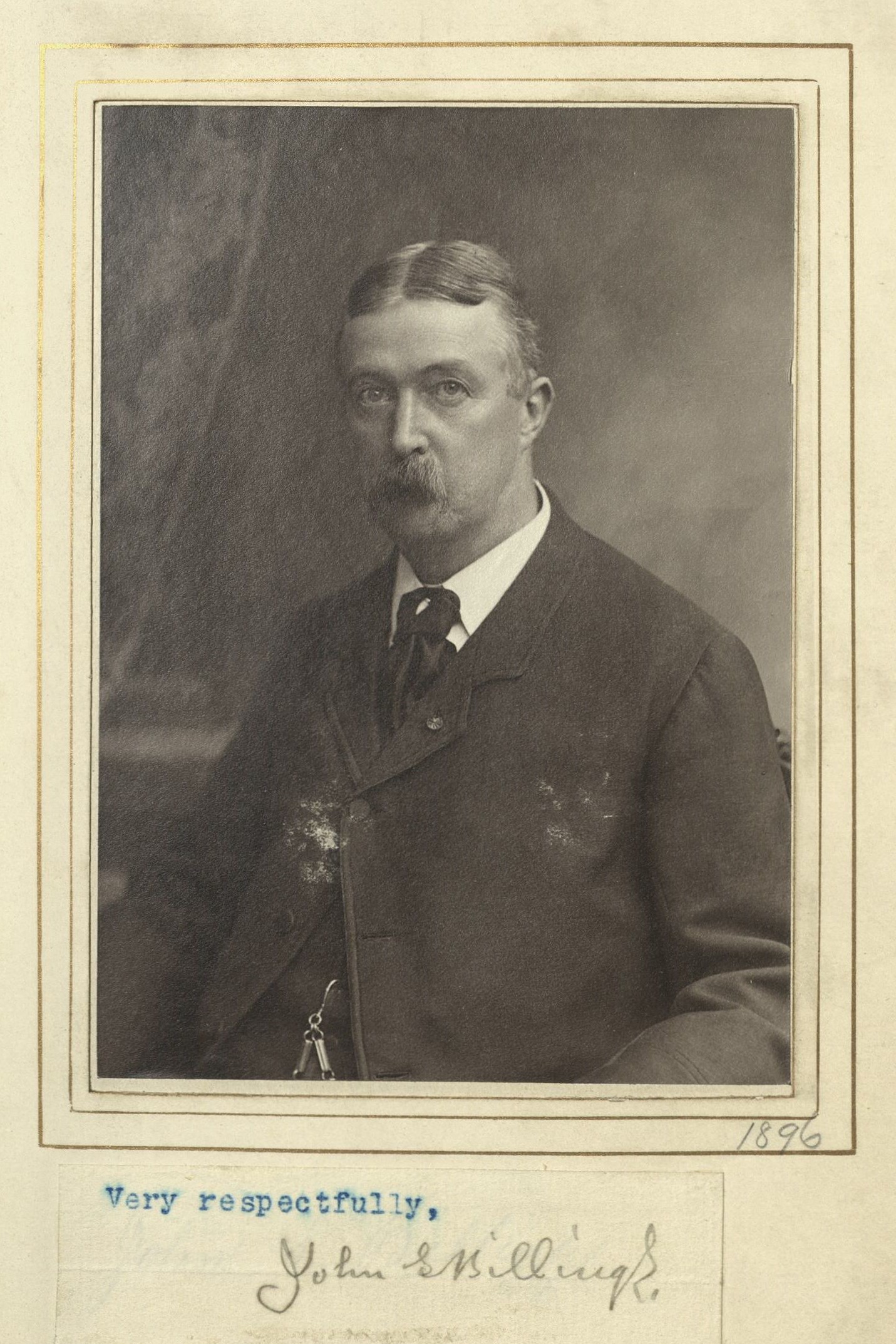Member Directory,
1847 - 1922
Edwin H. Anderson
Assistant Director, New York Public Library
Centurion, 1910–1947
John S. Billings and I. Ferris Lockwood
Zionsville, Indiana
Evansville, Illinois
Age forty-eight
Chicago, Illinois

Century Memorial
Edwin Hatfield Anderson. [Born] 1861. Librarian.
When the Great Accountant tots up the record of American cultural achievement, one of the largest items on the credit side of the ledger will be the development of the art and science of librarianship, which is no less than a means for making manageable the millions of items of our past and present history. And if He assigns credit for that magnificent development, doubtless the first name on His list will be Melville Dewey and assuredly the second will be Edwin Anderson. Such was the stature of our member for thirty-seven years.
American librarianship is an example of our technological competence, our engineering skill, our ability to make business big and to manage it. And Dr. Anderson’s contribution was at the heart of this peculiarly American kind of achievement: he was the superb picker and organizer and trainer of staffs, he developed branch libraries and tied them into centralized systems. Fortuitously, he did this first in Pittsburgh and caught the eye of Andrew Carnegie—caught the Carnegie eye with a display of organizing talents hardly different in kind and scope and quality from those of the steelmaster himself.
As Director of the Pittsburgh Library he built up a staff which became the model for the country; erected and organized a system of branch libraries with funds given by Mr. Carnegie; and started the Carnegie Library School. When he came to New York the pattern was the same: He put on its feet the rapidly expanding branch library system. When he succeeded Centurion Dr. John Shaw Billings as Director of the New York Public Library, he already had organized the Library School, again financed by Mr. Carnegie; and in 1926 he was a leader in effecting the consolidation of the School with the New York State Library School to form the Columbia University School of Library Service.
He served his beloved Century well, as a member of the Board of Management, as a member of the Committee on Literature; but he served it best at the Long Table where he came for lunch almost every day, a teller of tales some old and some new, but always good.
Source: Henry Allen Moe Papers, Mss.B.M722. Reproduced by permission of American Philosophical Society Library & Museum, Philadelphia
Henry Allen Moe
Henry Allen Moe Papers, 1947 Memorials



